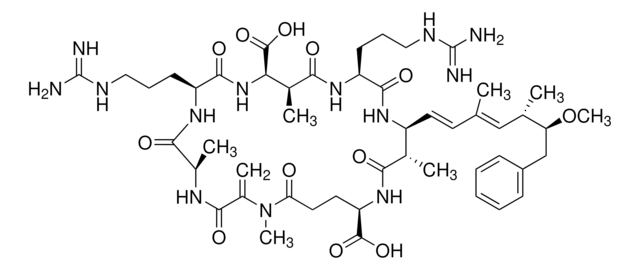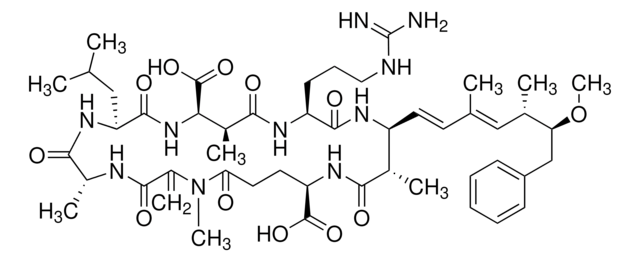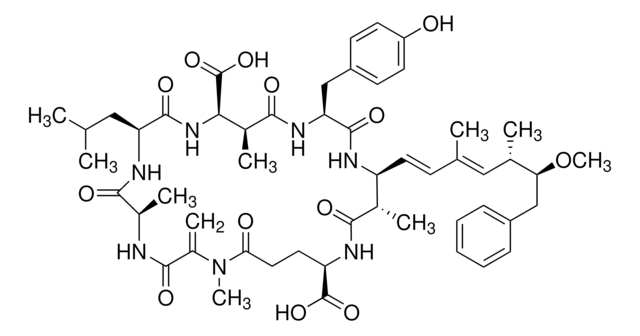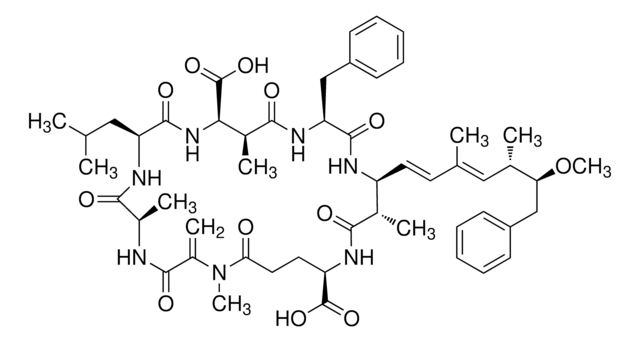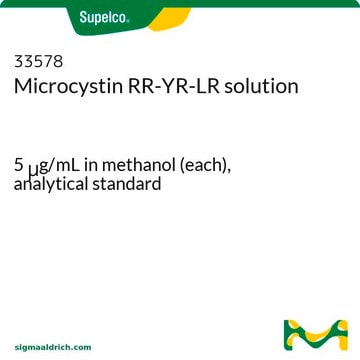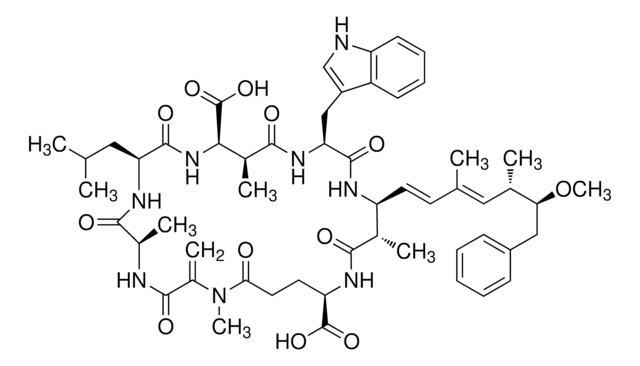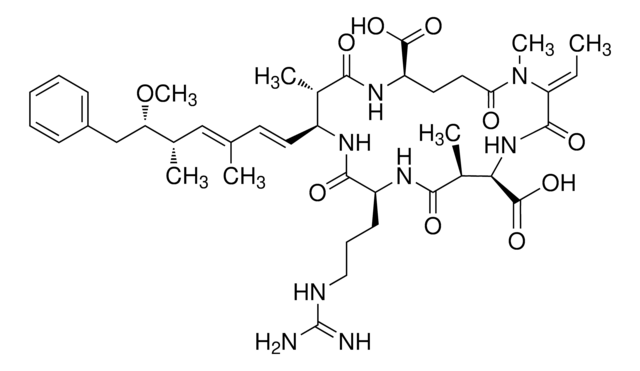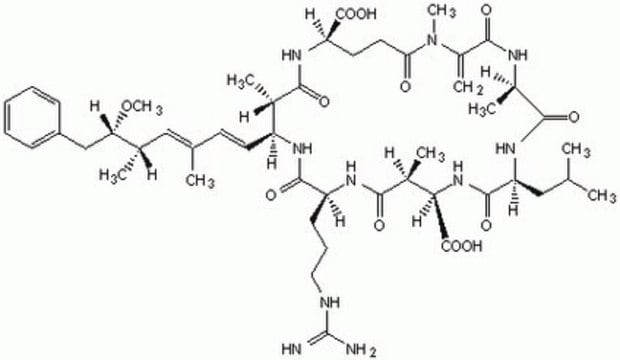33576
Microcystin-YR solution
10 μg/mL in methanol, analytical standard
Sinónimos:
Algae bloom standard, Biotoxin, Cyanobacterial toxin
About This Item
Productos recomendados
grade
analytical standard
shelf life
limited shelf life, expiry date on the label
concentration
10 μg/mL in methanol
technique(s)
HPLC: suitable
gas chromatography (GC): suitable
application(s)
environmental
format
single component solution
storage temp.
−20°C
SMILES string
CO[C@@H](Cc1ccccc1)[C@@H](C)\C=C(C)\C=C\[C@@H]2NC(=O)[C@H](CCCNC(N)=N)NC(=O)[C@@H](C)[C@@H](NC(=O)[C@H](Cc3ccc(O)cc3)NC(=O)[C@@H](C)NC(=O)C(=C)N(C)C(=O)CC[C@@H](NC(=O)[C@H]2C)C(O)=O)C(O)=O
InChI
1S/C52H72N10O13/c1-28(25-29(2)41(75-8)27-34-13-10-9-11-14-34)16-21-37-30(3)44(65)59-39(50(71)72)22-23-42(64)62(7)33(6)47(68)56-32(5)46(67)60-40(26-35-17-19-36(63)20-18-35)49(70)61-43(51(73)74)31(4)45(66)58-38(48(69)57-37)15-12-24-55-52(53)54/h9-11,13-14,16-21,25,29-32,37-41,43,63H,6,12,15,22-24,26-27H2,1-5,7-8H3,(H,56,68)(H,57,69)(H,58,66)(H,59,65)(H,60,67)(H,61,70)(H,71,72)(H,73,74)(H4,53,54,55)/b21-16+,28-25+/t29-,30-,31-,32+,37-,38-,39+,40-,41-,43+/m0/s1
InChI key
OWHASZQTEFAUJC-GJRPNUFSSA-N
General description
Application
signalword
Danger
Hazard Classifications
Acute Tox. 3 Dermal - Acute Tox. 3 Inhalation - Acute Tox. 3 Oral - Flam. Liq. 2 - STOT SE 1
target_organs
Eyes,Central nervous system
Storage Class
3 - Flammable liquids
wgk_germany
WGK 2
flash_point_f
51.8 °F
flash_point_c
11 °C
ppe
Eyeshields, Faceshields, Gloves
Elija entre una de las versiones más recientes:
¿Ya tiene este producto?
Encuentre la documentación para los productos que ha comprado recientemente en la Biblioteca de documentos.
Nuestro equipo de científicos tiene experiencia en todas las áreas de investigación: Ciencias de la vida, Ciencia de los materiales, Síntesis química, Cromatografía, Analítica y muchas otras.
Póngase en contacto con el Servicio técnico